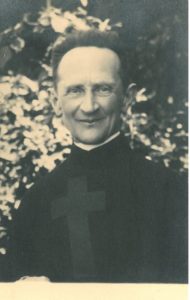 From Antonio Casera, Beato Enrico Rebuschini. Angelo dei sofferenti (edizione Velear).
From Antonio Casera, Beato Enrico Rebuschini. Angelo dei sofferenti (edizione Velear).
St. Camillus, in addition to the three traditional vows of poverty, chastity and obedience, added a specific vow for his new Order: complete service to the sick, even if plague-stricken. Father Enrico was also ‘heroic’ in caring for the sick. He stood out as a faithful imitator of St. Camillus.
He was a devoted son of his Founder. He saw Camillus as his teacher, with an intellect of love, with a decided wish to imitate him, not least because he was perfectly aware that this saint, through his Order, through his teachings, and through his examples, had prepared the way for the modern nurse in an effective way, that nurse who with his charity would know how to use the techniques and technology of care most suited to the epoch.
Father Enrico adopted and chose as a programme for his life the following phrase of St. Camillus: ‘A minister of the sick must be a man who draws near to his brother, who needs to open his heart to the hope of a better tomorrow, who must be understood and supported in this action of openness to the goals of time that finishes but also to those of eternity that never end’.
Father Enrico lived in the spirit of his Father and Teacher, and he strove to imitate him in his burning zeal for material and spiritual service to the sick.
In doing this, Father Enrico managed to present St. Camillus to us anew, as an extraordinary figure who belongs to all ages, with their needs and requirements.
Father Rebuschini should be understood with reference to his untiring ministry for the sick. He was a great apostle of the suffering. He managed to offer them the comfort and the peace of mind that only a friend of God can bestow. He was a master in the art of care. ‘About this ministry of his’, declared Msgr. Ernesto Cappellini, ‘which was the most felt, the most fertile and the most exemplary, there were very many testimonies’.
He saw the sick as an integral part of his life. They were his and for them he knew how to find the right words, ones reduced to a minimum but which revealed the efforts that this father made to immerse himself in the social, familial, intellectual and moral environment that had shaped the patient with whom he was speaking. A few words, but ones full of love and insight that put that patient at ease.
He had an unmistakable style in drawing near to a sick person and speaking to him. His stay in a room was always relatively short because he did not indulge in conversations for their own sake or to the pass the time of day. He entered a room to speak about God, to suggest Christian arguments for the acceptance of suffering, to bestow a blessing.



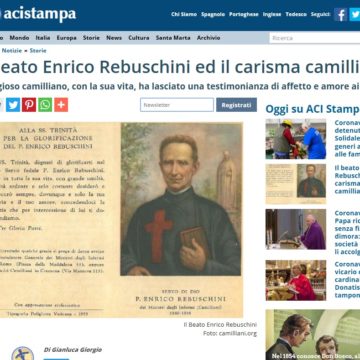
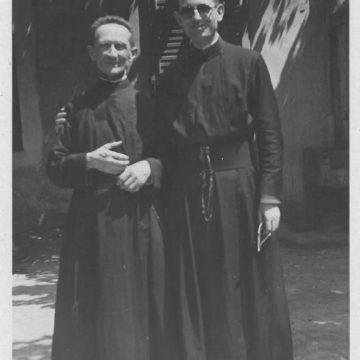






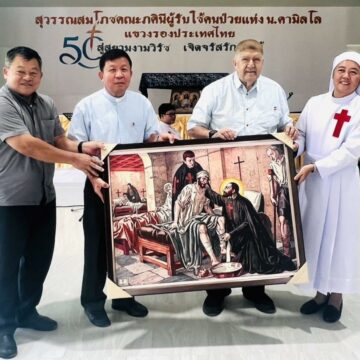
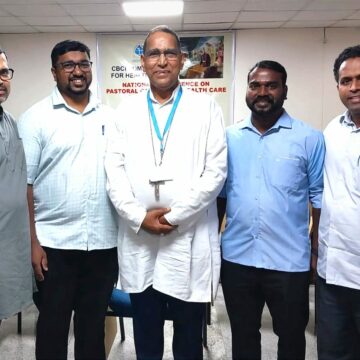


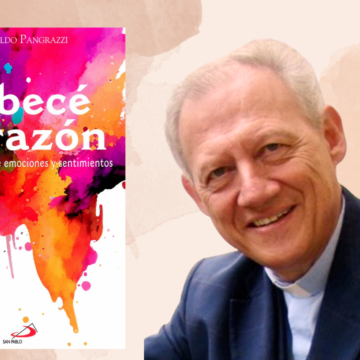
Camillians on Facebook
Camillians on Twitter
Camillians on Instagram